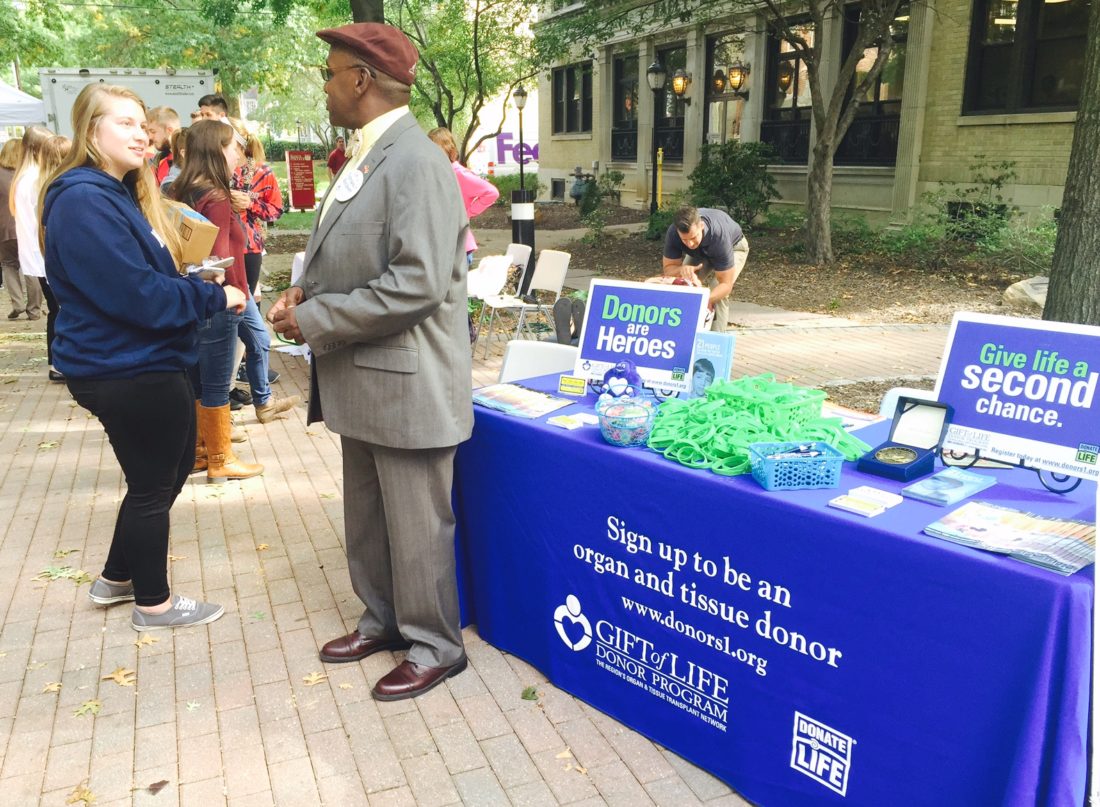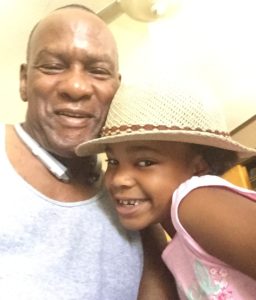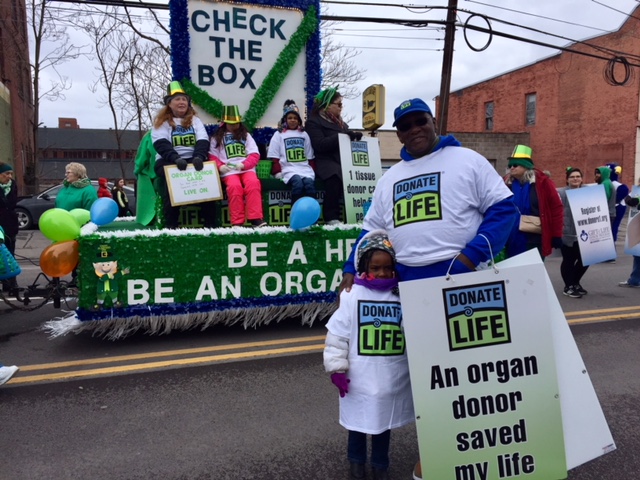
Lung recipient Keith Chalmers at Kings College Health Fair
In 2007, Keith Chalmers began experiencing shortness of breath. He knew that something was wrong. His doctor sent him to a specialist and he was diagnosed with a number of lung issues, including COPD, bronchitis and emphysema. He was put on inhalers, oral medications and oxygen.
“A few years later, it started to get even worse. The treatments weren’t helping anymore.” said Keith. “I could barely even take my daughter to school. I would only have to walk maybe 10 to 15 steps to take her to her class, but it wore me out. I would need to sit down and catch my breath. Even being on oxygen didn’t help.”
By 2014, Keith required oxygen 24/7 and his health was rapidly declining. “I felt so weak and sick. I called my sister and cried to her that I didn’t know what to do. She rushed me to the hospital and doctors said that I needed to go to Philadelphia and get tested for a possible lung transplant.” he said.
“Before I got sick, I was active.” Keith said. “I went to church and worked as a fork lift operator, which was a physical job. I’m a deacon at my local church and I’ve always tried to help people. Even when I was sick, I would shovel the snow for elderly neighbors and push myself to keep moving.”
Keith’s determination and faith in his religion helped pull him through this challenging period in his life. He received the gift of life – a new set of lungs – shortly after being added to the organ transplant waitlist. His recovery required him to devote much of his time and energy to respiratory rehabilitation, and to building his strength back up in the rest of his body. He was off of oxygen and was able to ride a stationary bike without having to catch his breath. For the first time, Keith began to feel like his life may be getting back to normal.
“After my lung transplant, I started to get my energy back and could do what I wanted to do without suffering. It’s been so nice to be able to help others again. Right now, I’m redoing the basement of my church.” said Keith.
Post-transplant, Keith can also run and play with his six-year-old daughter, Atia. She loves to play tag, and he can finally keep up with her. “I feel blessed. Religion played a big part in my recovery. Faith got me through it all. I am grateful for my donor and their family. I wrote to them to say thank you and to let them know that their generosity would be put to good use.” he said.
Keith shares his story openly with his church, family, friends and the community to show the positive impact that someone can have by being an organ and tissue donor. Keith understands that he was lucky to receive a second chance at life.
“After my lung transplant, I started to get my energy back and could do what I wanted to do without suffering. It’s been so nice to be able to help others again.” — Keith Chalmers
Keith said, “I tell people that they can live on and save the lives of others who are very sick. I really believe that people aren’t educated about organ donation. After my transplant, I decided that one of my goals in life would be to spread the message that organ donors save lives.”
Gift of Life’s Gospel Program originally shared Keith’s story in honor of National Minority Donor Awareness Week, which takes place annually from August 1st-7th. The week honors the generosity of multicultural donors and their families – while underscoring the critical need for minority communities to register as potential organ and tissue donors.
Nationally, minority communities make up 25% of the population, but represent a startling 58% and more of those waiting for a life-saving transplant. In Gift of Life’s region, over 50% of those waiting for a kidney transplant are minorities. Gift of Life believes this week is an important platform to build upon because the lack of education is crippling minority communities.
Currently in the region, more than 5,300 men, women and children are waiting for an organ transplant. In the U.S., an average of 20 people die while waiting because there aren’t enough organs available for transplant. Sign up as an organ donor today.


